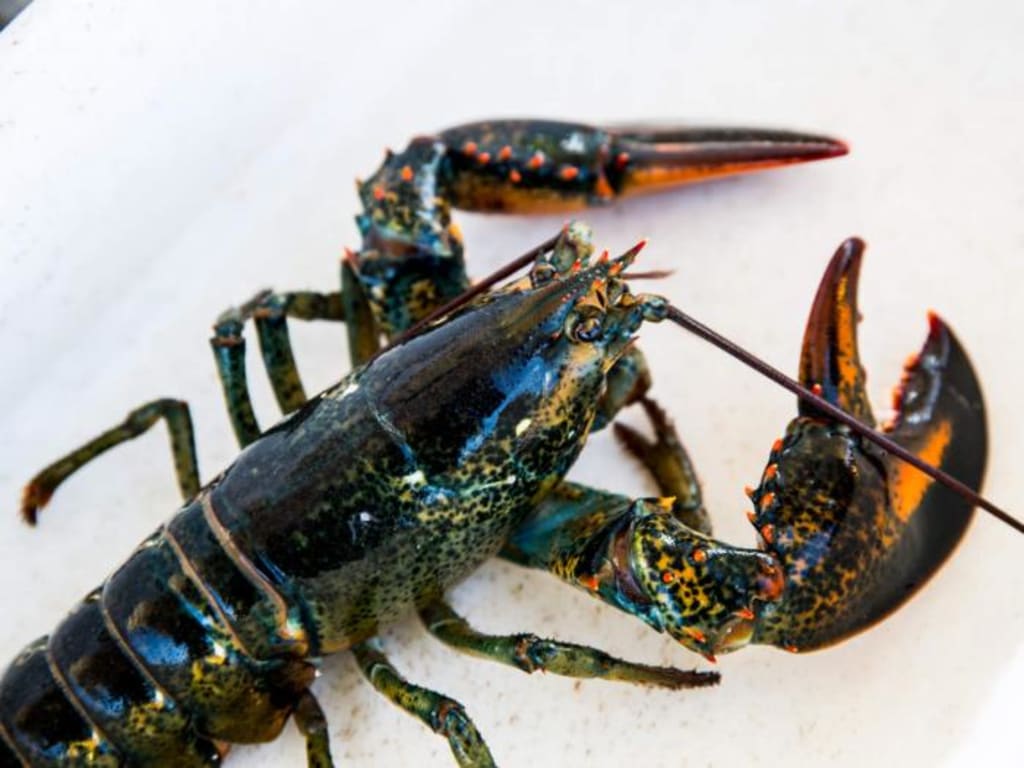If we take the telomerase gene from lobster and copy it into the human body, can humans achieve immortality?
Replicating the telomerase gene from lobster into human

Did you know that from ancient times to the present, some kings and princes pursuing immortality existed? Only it does not exist in human beings but lobsters. It is said that lobsters will not die as long as they do not eat it, is this true? Lobster can live forever?
The secret to lobster immortality
What do you think determines the length of life? Many people believe that the lifespan of life is related to cell division. When the number of cell divisions reaches a certain upper limit, it stops working and our life ends. This substance that affects cell division is called a telomere.
It is attached to the chromosomes to protect them from disruptions during DNA disassembly and replication, thus keeping the DNA stable. However, each time a cell divides, the telomeres are damaged, and over time, until they are worn down to the point where they cannot support cell division, death will come.
But lobsters are different from people, their telomeres will wear out, but in cell division can replenish themselves, which means that their cells can divide endlessly and achieve "immortality", the premise is that they will not be killed by humans and diseases. Of course, it should be stressed that the telomere theory is currently a hypothesis, not yet fully proven, but has been widely recognized.
Genes
If telomeres are damaged to a certain limit, the organism will die. But organisms contain something called "telomerase" that can extend telomeres, restore their length, and give them a second life. The more telomerase a creature has, the more it can renew its life, and the more likely it is to achieve immortality.
Only humans and many animals do not have a lot of active telomeres in their bodies, so their life span is limited, but lobsters, they have a lot of active telomerase, which is why they can keep dividing cells and molting and growing. Unfortunately, their hearts and brains are not telomerase to help renew, these core parts once damaged or senescent scrap lobster will still die.
The most famous long-lived lobster is called George, which was captured by humans in Finland in 2008. It is reported that its life expectancy is about 140 years when it weighed nearly 20 pounds. But at such an advanced age, it looks very healthy. In addition to George, humans have not found a few long-lived lobsters. If the theory of lobster longevity, is correct then we see that 100-year-old and 200-year-old lobster should not be very common. This would suggest that even though lobsters can divide cells indefinitely, with no telomeres to hinder them, they are still bound by nature and may die for some reason after reaching a certain age.
What is this cause?
By studying telomeres, it was found that they are damaged in most of our organisms, this is to keep the DNA stable and also to avoid cancer in the cells in the body. It is the more the DNA divides, the more common the disorder will be.
So although lobsters can divide cells indefinitely, it can also lead to some cancerous changes due to disorder. And cancer is also a great threat to their life span. When they live longer, the higher the chances of cancer. In short, even if lobsters have no natural enemies, they are at risk of cancer after a certain age, which is a ghostly gate they must walk in life.
There is an important reason for the death of lobsters: shelling. The lobster's body will have a hard shell to protect them. But these shells do not grow with the lobster, but after every period, to molt. The new shell will grow back to accommodate its larger size. However, the difficulty of molting is also positively correlated with size. The larger the size of the lobster, the more difficult it is to molt. In the process of re-shelling, they may exhaust themselves or get injured. So, nature is controlling the life span of the lobster in the dark.
If this gene is copied to the human body, can humans achieve immortality?
Of course, at present, humans can not do immortality, our cell division will reach the number of times will die, unless the cell can divide infinitely or revert to the original state. However, as mentioned above, the maximum number of cell divisions is presumed to be determined by the length of chromosome telomeres, and this lobster could theoretically live forever precisely because it does not consume telomeres when dividing. If the principle can be understood, humans may not be unable to live forever.
However, there is a cell that can divide indefinitely in humans, and it is a cancer cell, and the problem of indefinite division is a headache. Suppose a cell can divide 7 times, and each division requires 1 unit of energy, then it needs to consume at least 1+2+4+8+16+32+64=127 units of energy, and each time it divides, the next division will require twice the energy of the previous one. (That said, this series is very interesting, each division requires energy, the total amount of energy previously consumed plus 1) In other words, if humans can control cancer cells, theoretically humans can gain immortality.
Currently can do immortality of biological composition are very simple, humans as complex creature can not do immortality, and do not dream of immortality, the future may have methods that can be achieved to extend life, but bacteria think to do immortality is unlikely. I heard that the ultra-high speed will make the surrounding space distorted, in the process, the internal time and the external time flow are not the same, similar to time travel. But this effect is minimal unless you reach the speed of light, and at present humans really can not reach the speed of light. In case the technology of immortality is realized one day, are you willing to live forever?
In short, immortality is not conducive to the development of human reproduction, and more harm than good. In addition to lobsters, lighthouse jellyfish and some of the jellyfish found in the waters of the South China Sea have been proven to have the ability to "live forever". It can theoretically live forever, but here is a point to emphasize that it can only theoretically.
When we look at the natural world, the creatures that have this "longevity" ability tend to be concentrated in some lower organisms. In the path of natural evolution, the higher organisms give up long life as a cost to choose to die to promote the continuous optimization of individual capabilities within the community, to achieve the overall development of the community. Death is not terrible, what is terrible is the decay of a community.






Comments
There are no comments for this story
Be the first to respond and start the conversation.